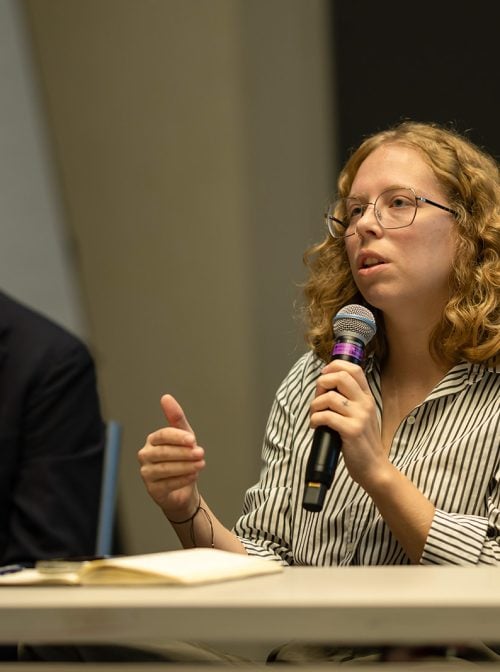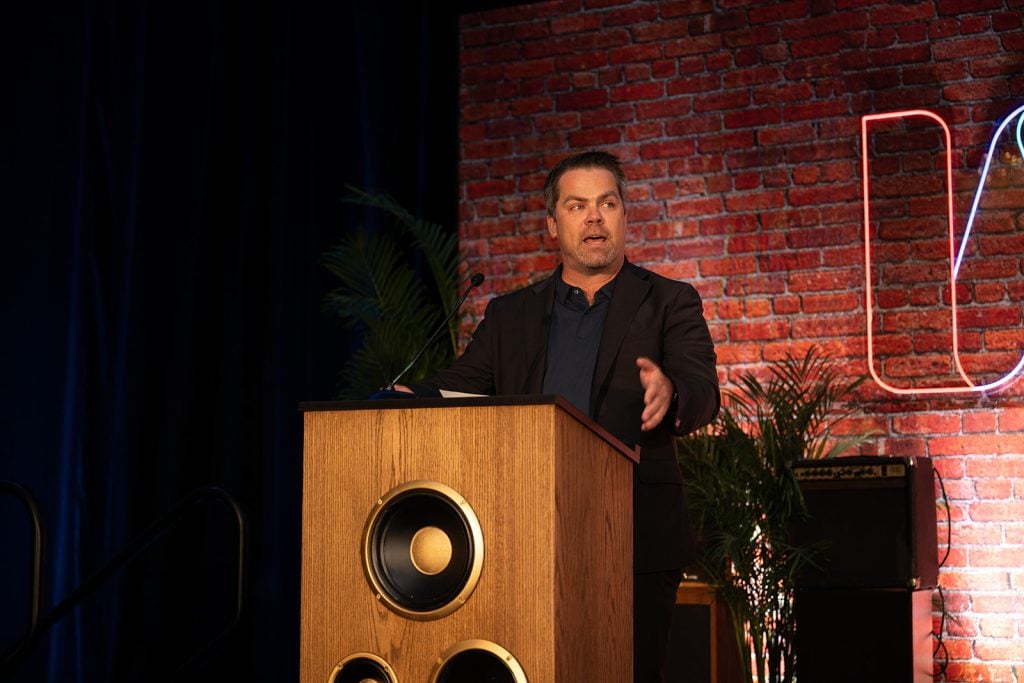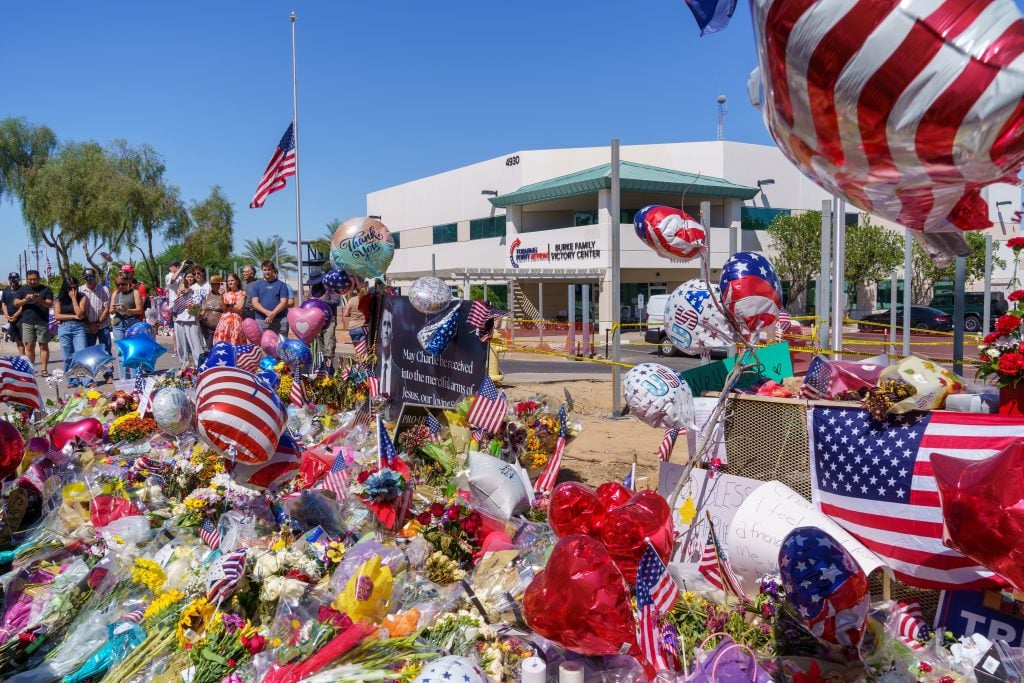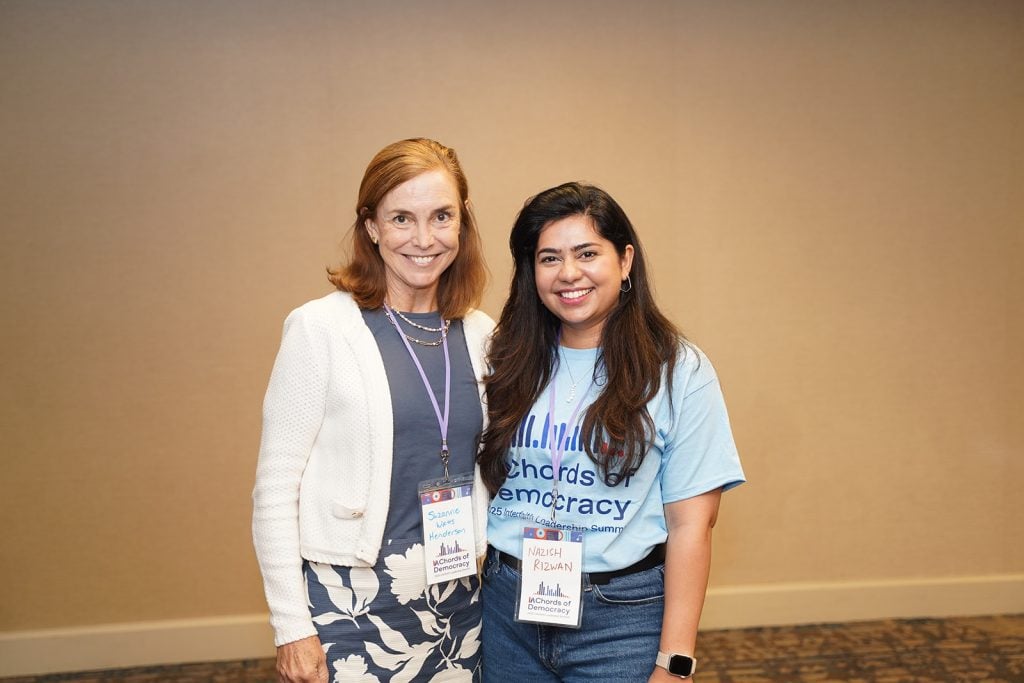“You have to tell the bigger story,” said University of Minnesota MBA Candidate Jake Smith, recounting to an audience of undergraduate students a key measure of his team’s success in beating out 15 other teams from top MBA programs across the country in BYU’s 2025 Faith and Belief at Work case competition.
Smith and Minnesota teammate Jax Collins spoke on the “Navigating Faith in the Workplace” panel at the Interfaith Leadership Summit in early August alongside early-career professionals Parth Bhansali, IA Emerging Leader, and Matt Young, Senior Brand Manager at P&G.
In recent years, the Summit, which is historically a destination primarily for higher education leaders and undergraduate students, has welcomed professionals aiming to advance religious inclusion in their current and future workplaces.
This year, programming like the “Navigating Faith in the Workplace” panel and a business roundtable co-hosted by IA partner Accenture entitled “Pluralism at Work: Unlocking Hidden Talent” opened opportunities for corporate leaders and business students to join in on the conversation.
If the engaged and enthusiastic attendance at both events is any indication, aspiring and early-career corporate professionals are invested in this work and hungry for venues to collaborate and explore how they can expand on their workplaces’ current practices.
The bigger story Smith, Collins, and their team presented in their winning case study is one that a growing chorus of corporate professionals and employee resource group (ERG) leaders are eager to communicate.
The team argued that paying attention to faith in the workplace is good for business. Research and practice surrounding faith-based ERGs shows that welcoming and engaging religious diversity in the workplace boosts employee performance and retention. Research also confirms that faith-friendly organizations have higher employee satisfaction regardless of employees’ faith identity or adherence.
In the case study competition, teams were tasked with advising a company that was considering eliminating an interfaith employee resource group due to budgetary concerns.
The winning team’s strategy included recommendations to build interfaith practices into the company’s research & development and marketing efforts and to restructure the resource group to partner with revenue-generating sectors within the company and local partners, integrating interfaith inclusion in the company and in the broader community.
Members of the “Navigating Faith in the Workplace” panel emphasized that religious inclusion and company key performance indicators need not be at odds.
“Bottom line is revenue, and faith helps you get to that,” said Bhansali, sharing about a local market in Utah where advertising to those celebrating Pioneer Day — a July holiday observed by Latter-day Saints — helped Reddy Ice meet sales goals one summer.
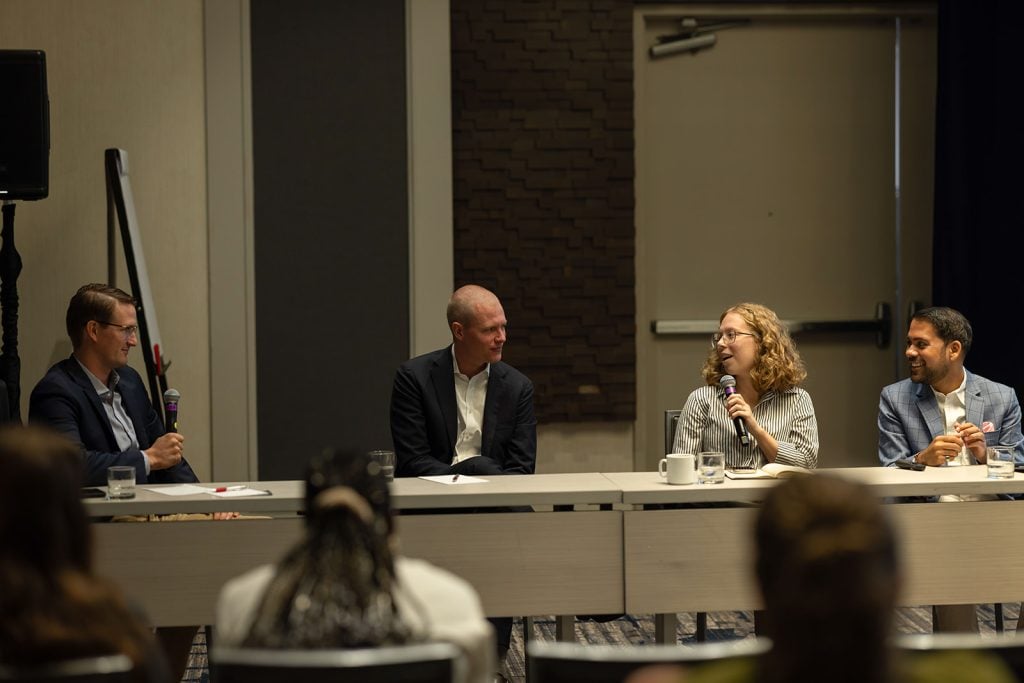
As Smith and Collins shared with Summit attendees, a winning approach to religion in the workplace not only infuses inclusivity in a company’s output but also strengthens a company’s culture by making space for employees to bring their best professional selves to work and creating the opportunity to build relationships across differences.
“The workplace is actually often the first place where you will encounter the level of diversity that you do,” said Accenture Director of Talent & Human Potential Sumreen Ahmad at the “Pluralism at Work” roundtable.
She emphasized the value of religious literacy not only as a necessity in navigating a workplace for the first time, but also in consistently delivering for clients throughout one’s career.
“Up until that point,” Ahmad said, “you can pretty much curate your circle, but when you show up at work, you may find yourself in a situation where someone is fundamentally opposed to how you think, yet you still have a shared purpose.”
In conversation with co-panelist Sylvester Johnson of the Corporation for Public Interest Technology, Ahmad and roundtable participants also addressed how pluralism and faith traditions can help those aiming to develop “future proof” skills like analytical thinking, empathy, and creativity — which the World Economic Forum projected in their Future of Jobs Report to be the most in demand by the year 2030.
Bringing these skills to work is especially pertinent with the rise of artificial intelligence.
“I think will we will be nudged or forced to see [values that religious systems have provided] more clearly as we live in the society that’s more automated, that’s more machine based, and that can sometimes push us to operate at such a speed where we don’t find as much time to be reflective, or to slow down and have that person-to-person touch” said Johnson, “but I think that’s going to become more valuable.”
The current moment presents countless challenges to the work of realizing the power of religious pluralism in the workplace: politicization of inclusive policies, funding cuts to DEI initiatives and teams, and the speed of evolving technologies like machine learning, that don’t always center non-Western perspectives.
Yet, for those willing to approach these challenges with the same open and steady mindsets, often rooted in the religious and cultural traditions that carried us through tribulations and uncertainties like the COVID-19 pandemic, Ahmad is convinced there’s great potential — and hope.
“If you can create meaningful experiences where people feel like they belong and feel seen, you actually unlock five times their potential” she said. “There’s actually a business case to be made for creating belonging for people.”
Young leaders — from undergraduate students to MBA candidates, to business faculty, to Fortune 500 company employees — agree.
As Young put it: “what’s fun is that there’s work to do, and we get to do it together.”
